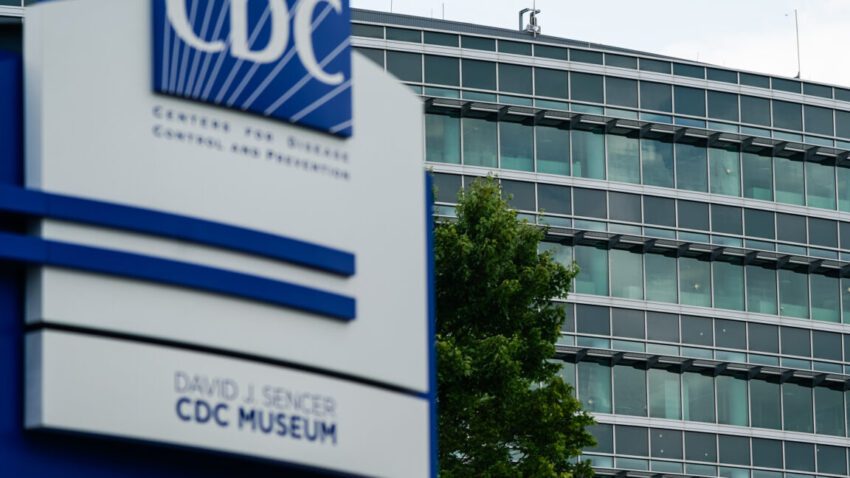
layoffs a coding error chaos trump admin Federal health agencies are grappling with significant upheaval following mass layoffs that have particularly impacted the Centers for Disease Control and Prevention (CDC), with some terminations being rescinded shortly after.
layoffs a coding error chaos trump admin
Overview of the Layoffs
On Friday, reports emerged indicating that over 4,000 federal workers were initially targeted for layoffs across various agencies. The Trump administration attributed these firings to the ongoing government shutdown, a move that has raised legal questions regarding its legitimacy. Legal experts have suggested that the administration’s actions may violate federal employment laws, leading to immediate backlash from labor unions representing federal employees.
Impact on Health Agencies
Among the affected agencies, the Department of Health and Human Services (HHS) faced the brunt of the layoffs. Reports indicate that approximately 1,100 to 1,200 employees within HHS were terminated. This department plays a vital role in public health and welfare, housing essential agencies such as the CDC, the National Institutes of Health (NIH), the Food and Drug Administration (FDA), and the Centers for Medicare & Medicaid Services (CMS).
Prior to the onset of these layoffs, the HHS workforce stood at around 82,000 employees. However, this number has dwindled to approximately 62,000 earlier this year due to previous cuts and efforts to streamline the workforce. The ongoing layoffs have raised concerns about the department’s capacity to effectively manage public health initiatives, especially in the wake of the COVID-19 pandemic and other pressing health crises.
Legal and Union Responses
The mass layoffs have not gone unnoticed by labor unions. Unions representing federal workers have already filed a lawsuit challenging the legality of the terminations. They argue that the administration’s actions are not only unjust but also violate the rights of federal employees. The lawsuit seeks to halt the layoffs and restore the positions of those who were terminated.
Legal experts have weighed in on the situation, suggesting that the administration’s justification for the layoffs—linking them to the government shutdown—may not hold up in court. The legality of such mass firings during a shutdown is contentious, and the outcome of the lawsuit could set a significant precedent for future actions taken by federal administrations during similar circumstances.
Potential Consequences for Public Health
The implications of these layoffs extend beyond the immediate job losses. The CDC, in particular, has been at the forefront of public health efforts during the COVID-19 pandemic, and the loss of experienced personnel could hinder its ability to respond to ongoing health challenges. The agency has been tasked with managing not only the pandemic but also other critical health issues, including vaccine distribution, disease surveillance, and health education.
Experts warn that the reduction in workforce could lead to delays in critical health initiatives, increased workloads for remaining employees, and a potential decline in the quality of public health services. The CDC’s ability to conduct research, implement health policies, and respond to emerging health threats could be severely compromised.
Reactions from Stakeholders
The mass layoffs have sparked outrage among various stakeholders, including public health officials, lawmakers, and advocacy groups. Many have expressed concern over the long-term effects on public health infrastructure and the potential for increased health disparities in vulnerable populations.
Public Health Officials’ Concerns
Public health officials have voiced alarm over the layoffs, emphasizing that a robust workforce is essential for effective health management. They argue that the CDC and other health agencies require adequate staffing to address current and future health crises. The loss of experienced personnel could lead to a knowledge gap that may take years to fill, further exacerbating public health challenges.
Political Reactions
Lawmakers from both parties have also reacted strongly to the layoffs. Some have called for immediate action to reverse the terminations and restore funding to health agencies. Others have criticized the administration for its handling of the situation, arguing that the layoffs reflect a broader disregard for public health priorities.
In particular, Democratic lawmakers have emphasized the need for a well-resourced public health system, especially in light of the ongoing pandemic. They have urged the administration to reconsider its approach and prioritize the health and safety of the American public over budgetary constraints.
Historical Context
The current layoffs are not an isolated incident but part of a broader trend of workforce reductions within federal agencies. The Trump administration has pursued various measures aimed at downsizing the federal workforce, often citing the need for efficiency and cost savings. However, critics argue that these efforts have undermined the capacity of essential agencies to fulfill their missions.
Historically, public health agencies have faced budget cuts and staffing reductions during times of political turmoil. The consequences of such actions have often been felt long after the cuts were made, leading to weakened public health systems and increased vulnerability to health crises.
Future Implications
The ongoing situation raises critical questions about the future of public health in the United States. As the nation continues to grapple with the aftermath of the COVID-19 pandemic, the need for a strong and capable public health workforce has never been more apparent. The current layoffs could have lasting effects on the ability of health agencies to respond to emerging threats and manage public health initiatives effectively.
In addition to the immediate impacts on staffing and morale, the layoffs may also affect the recruitment and retention of talent within federal health agencies. The perception of job security and the stability of federal employment may deter potential candidates from pursuing careers in public health, further exacerbating workforce challenges in the long term.
Conclusion
The mass layoffs at federal health agencies, particularly the CDC, have raised significant concerns about the future of public health in the United States. As legal challenges unfold and stakeholders react, the implications of these actions will likely reverberate throughout the health system for years to come. The need for a robust and well-resourced public health infrastructure is critical, and the current situation serves as a stark reminder of the importance of investing in the health and well-being of the nation.
Source: Original report
Was this helpful?
Last Modified: October 14, 2025 at 5:36 am
0 views















